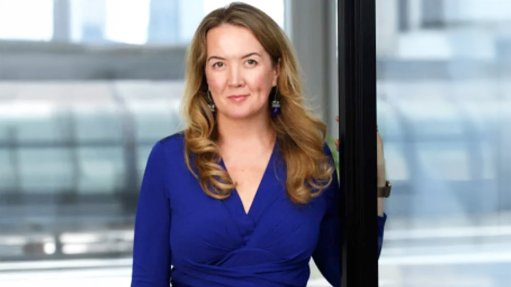Climate finance and the political economy of finance
In his book, Feline Philosophy, which is about what cats can teach humans, John Gray points us to a few lessons. One of these is pertinent to what I discuss in this article: beware of anyone who offers to make you happy.
Gray warns that what others promise you as heaven on earth is unlikely to unfold. He adds that one should be warier if the promise is made by populist political figures, who tend to be caught with their hands in the till quite often.
Climate finance has become a sort of promise, not necessarily by people with hands in the till, but by people who seldom deliver on their promises to the most vulnerable. The entire political economy of finance has to change if the challenge of climate change is to be resolved.
The Paris Agreement on climate change led to the formation of a global climate fund that is known as the Green Climate Fund. This fund was meant to hold $100-billion a year for the next couple of decades, with the main purpose being the provision of support for mitigation and adaptation initiatives in developing countries.
The damage caused by extreme weather events is estimated at an average of $300-billion a year, with valuable infrastructure in island nations repeatedly subjected to devastating destruction. But these extreme weather hits are not limited to small island States; they also affect many coastal cities. Neighbouring Mozambique, for instance, is hit by recurring cyclones, causing flooding and the destruction of critical infrastructure that is vital to its economy and the livelihoods of its populace. Mozambique is also key to exports from landlocked countries such as Malawi and Zimbabwe.
One of the principles of the Paris Agreement is shared but differentiated responsibilities. The agreement does make provision for increased flows of finance that go beyond climate finance. But these flows are largely premised on the idea that public funds must catalyse the crowding in of private funds.
Transitions are not little projects amenable to narrow climate finance, and trying to unlock funds from these bureaucratic institutions is another matter. Transitions ought to be systemic processes of change that require central banks and treasuries to create fiscal space by allocating resources towards transitions.
In turn, macroeconomic policy should be used to nudge and cajole private firms to start allocating resources towards transition support.
If you read the works of Vaclav Smil, one of the best thinkers on energy issues and systems, you will realise that technoeconomic shifts take a long time to happen, yet we are seeking to solve decades of climate mismanagement in a very narrow time period.
This is a tall order for governments moored to fiscal austerity and where private finance will only take risks when there is, well, no risk, but high rewards. Of course, private finance will only step in for scale where government is able to absorb the risks.
It is also clear, when it comes to austerity principles, that there are some rules for some people and other rules for other people – it all depends on whether you are a creditor or debtor nation.
The European Central Bank (ECB), in its latest push to ‘green’ Europe, is playing a significant role in decarbonising its balance sheet. The ECB’s position is clear: over time, it should exclude from its portfolio the buying of bonds that are inconsistent with the European Union’s target to be carbon-neural by 2050.
Indeed, there is no consensus among central bankers and economists on the role that central banks should play. Some experts are calling for central banks to hold positions of neutrality, among other things, while others are suggesting that the climate crisis is enough of an emergency for central banks to do away with their neutrality.
The ECB, they suggest, should actively ban itself from buying bonds from companies that have heavy externalities.
At the heart of the debate is whether we should treat the climate crisis as simply an event that can best be solved through the prevailing central bank model of price stability and strengthening financial institutions, or whether central banks should be playing a more developmental role.
It is not that no precedent exists; one just has to look at the post-World War II role that the Bank of Japan played in the reconstruction of that country. Central banks can indeed be more directive of where money should flow and how it should be allocated.
Central banks can carry more than one mandate, if they want, and monetary policy should increasingly include not only climate risks as a factor for financial stability but also transition targets.
The amounts needed for transitions run into trillions of dollars and, among other things, should be used to buy out fossil fuels, scale new cleaner technology, fund research and development associated with new technologies, climate-proof critical infrastructure, fund projects aimed at ensuring recovery following disasters and replenish insurance funds. Poorer countries simply do not have the depth of government and private funds to deal with these challenges.
Since rich countries are largely responsible for the bulk of greenhouse-gas emissions, an externality which they transferred on to others at no cost to themselves, they ought to compensate for the side effects of such externalities. The global financial system needs to be more aligned with a transitional, developmental agenda than facilitating cheap money. On this issue, the 2019 United Nations Conference on Trade and Development report on the need for a Global Green Deal provides for some interesting reading. The thrust of this report is that there is a need for more government intervention, which is what most green deal policy frameworks are pushing for.
Article Enquiry
Email Article
Save Article
Feedback
To advertise email advertising@creamermedia.co.za or click here
Press Office
Announcements
What's On
Subscribe to improve your user experience...
Option 1 (equivalent of R125 a month):
Receive a weekly copy of Creamer Media's Engineering News & Mining Weekly magazine
(print copy for those in South Africa and e-magazine for those outside of South Africa)
Receive daily email newsletters
Access to full search results
Access archive of magazine back copies
Access to Projects in Progress
Access to ONE Research Report of your choice in PDF format
Option 2 (equivalent of R375 a month):
All benefits from Option 1
PLUS
Access to Creamer Media's Research Channel Africa for ALL Research Reports, in PDF format, on various industrial and mining sectors
including Electricity; Water; Energy Transition; Hydrogen; Roads, Rail and Ports; Coal; Gold; Platinum; Battery Metals; etc.
Already a subscriber?
Forgotten your password?
Receive weekly copy of Creamer Media's Engineering News & Mining Weekly magazine (print copy for those in South Africa and e-magazine for those outside of South Africa)
➕
Recieve daily email newsletters
➕
Access to full search results
➕
Access archive of magazine back copies
➕
Access to Projects in Progress
➕
Access to ONE Research Report of your choice in PDF format
RESEARCH CHANNEL AFRICA
R4500 (equivalent of R375 a month)
SUBSCRIBEAll benefits from Option 1
➕
Access to Creamer Media's Research Channel Africa for ALL Research Reports on various industrial and mining sectors, in PDF format, including on:
Electricity
➕
Water
➕
Energy Transition
➕
Hydrogen
➕
Roads, Rail and Ports
➕
Coal
➕
Gold
➕
Platinum
➕
Battery Metals
➕
etc.
Receive all benefits from Option 1 or Option 2 delivered to numerous people at your company
➕
Multiple User names and Passwords for simultaneous log-ins
➕
Intranet integration access to all in your organisation

















